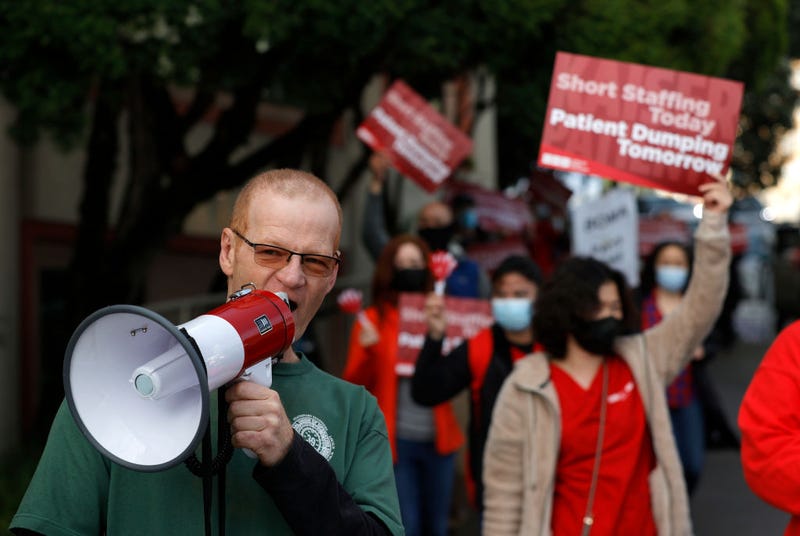
Another major labor strike could be launching very soon.
Over 75,000 health care workers with Kaiser Permanente -- including nurses, lab technicians, pharmacists and therapists -- are planning to strike if a new deal isn't reached by midnight on Saturday, NPR reported.
Staffers would walk off the job at hospitals, clinics and medical offices from Oct. 4 through Oct. 7, in what would be the largest health care strike in U.S. history.
The strike would impact hundreds of Kaiser Permanente facilities across California, Colorado, Oregon, Washington, Virginia, and Washington DC, according to CNN.
Workers are reportedly calling for a pay raise, improved benefits, and more hires to address a staffing shortage.
Caroline Lucas, executive director of the Coalition of Kaiser Permanente Unions, told NPR that an exodus of health care workers during COVID coupled with the surge in demand as patients come back for routine care they delayed because of the pandemic has created a crisis.
"How do you double your workload and still remain that, you know, dialed-in level of detail and attention to detail that's required for difficult medical diagnoses and testing," Lucas said.
If Kaiser raises wages, it would give employees a reason to stay, Lucas added.
"They work 40, 50, 60 hours a week at a job that we all know as a society that we need to have filled, and they can't pay their bills at the end of the week," she told NPR.
Pamela Reid, an optometrist at Kaiser's Marlow Heights Medical Center in Maryland, said the staffing shortage is already affecting the quality of care patients receive.
"[Patients are] really already being affected. So our goal with the strike is to hopefully change that," Reid told NPR. "Pre-pandemic, it was more like you can get an appointment within 5 to 10 business days. Post-pandemic, it's more like 1 to 2 months."
A final round of negotiations is scheduled on Friday. Kaiser's current contract with the labor unions expires on Saturday.
In a statement to CNN, a Kaiser spokesperson said the company was prepared if workers walk off the job, but they also urged employees to reject a strike.
"Given the progress being made in national bargaining over the weekend and Monday, there is no reason to strike. The best place to reach an agreement is at the bargaining table," the statement said. "We take any threat to disrupt care for our members seriously and have plans in place to ensure we can continue to provide high-quality care should a strike actually occur next week."
Kaiser Permanente is one of the nation's largest health care providers and not-for-profit health plans, serving 12.7 million members, according to its website. The organization operates 39 hospitals and 622 medical offices nationwide.
